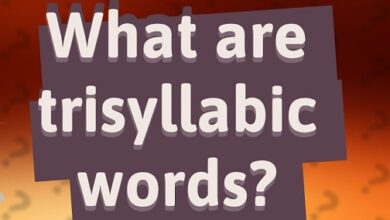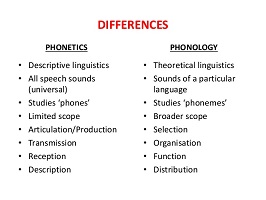Free variation examples in English with effects
Free variation
In linguistics, free change is the phenomenon of two (or more) sounds or forms arising in the same environment without changing the meaning and without that is considered the wrong way by native speakers. In this article we are describing Free variation examples
Sounds are found in the same environments and do not distinguish between words and meanings. These are variants of the same language unit.
Free Variation in English with effects
When the phonemes are in free form, speakers are sometimes well aware of this fact (especially if such a change is only noticeable through dialectal or socio-social division) and note, for example, that the tomato is pronounced differently in British and American English ( / t ə m ɑː t oʊ / u / t ə m eɪ t oʊ / respectively), or something has two pronunciations, which are distributed rather randomly. However, only a very small fraction of English words exhibit such variations. In the case of allophones, however, free variation is very common, and, along with different intonation patterns, variations in allophones are the most important feature in characterizing regional accents. The deep spelling of the English language and the wide variety of language accents often cause confusion even among native speakers of how to pronounce written words. This allows you to largely change the English language freely.
Examples
Below are some examples of free variation
- The rhotic consonant / r / is in free variation between the alveolar approximant, the retroflex approximant, the alveolar flap, and the alveolar trill, although all of them except the first are considered dialectal and rare.
- Glottalization from a voiceless stop at the end of a position word: for example, the word stop can be expressed with a simple non- aspirated [p], [stɑp], or with a glottalized [P], [stɑpˀ], also called a glottal stop or glottal plosive.
- The world economy can be pronounced with / i / or / ɛ / in the first syllable; although individual speakers may prefer one or the other, and one may be more common in some dialects than others, both forms occur within the same dialect, and sometimes even within the same idiolect.
- In other words, either and not a single “ei” can be pronounced as / iː / or / aɪ / even by the same speaker.
- Borrowed words, especially those of French and Latin origin, can often have several different pronunciations, such as route, which can be pronounced / r aʊ t / (a more anglicized pronunciation ) or / r uː t / (a more French pronunciation).
- The word data can be expressed either as / d æ t ə / or / d eɪ t ə /.
- Proper names, geographical names particular state may have several different pronunciations, e.g., Colorado, which can be expressed as either / ˌ to ɒ l ə g ɑː d oʊ / u / ˌ k ɒ l ə g æ d oʊ /



